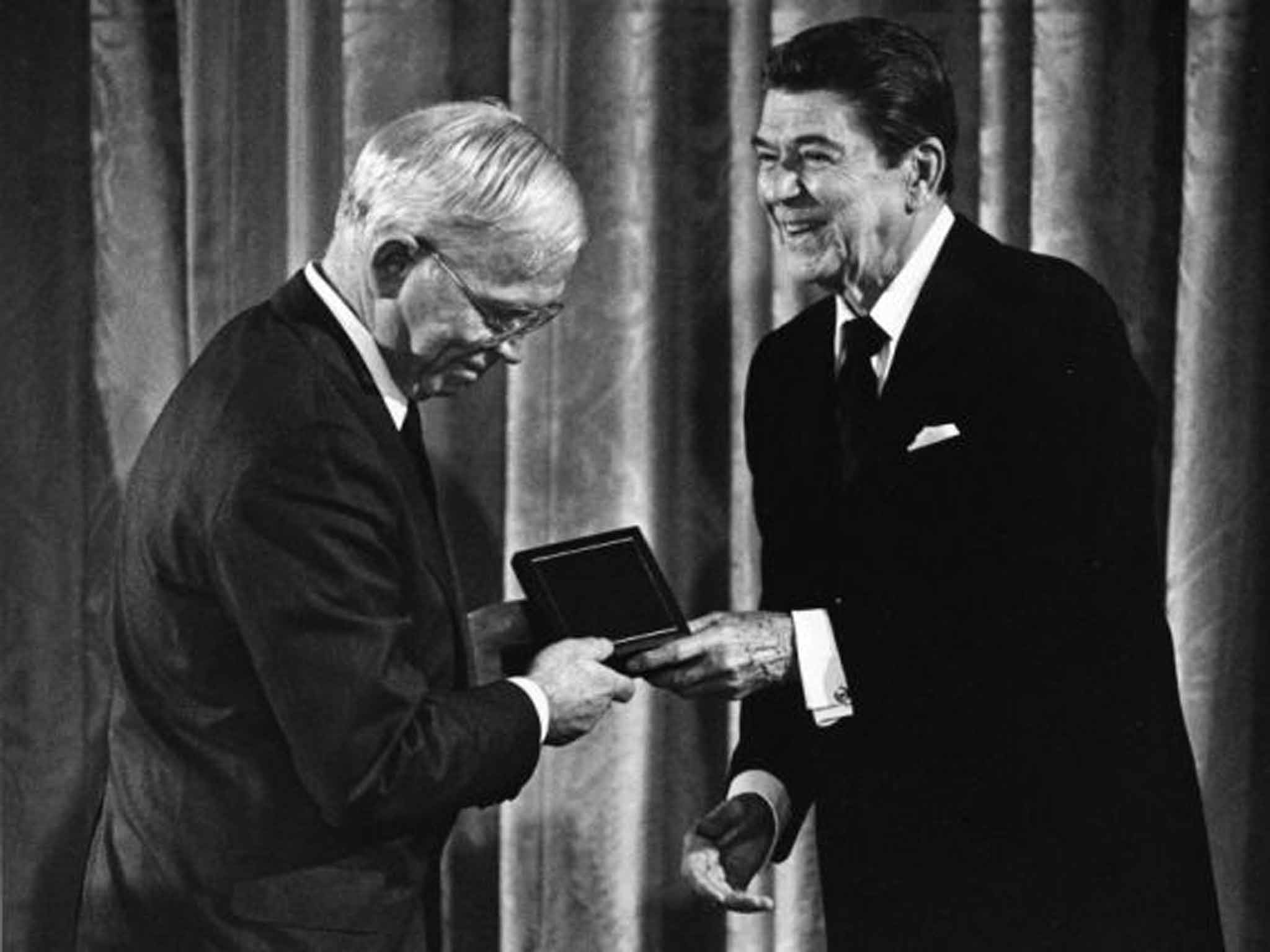Professor Vernon Mountcastle: Researcher who described cell organisation in the brain and was hailed as the father of neuroscience
He received nearly every major award in science apart from the Nobel Prize

Your support helps us to tell the story
From reproductive rights to climate change to Big Tech, The Independent is on the ground when the story is developing. Whether it's investigating the financials of Elon Musk's pro-Trump PAC or producing our latest documentary, 'The A Word', which shines a light on the American women fighting for reproductive rights, we know how important it is to parse out the facts from the messaging.
At such a critical moment in US history, we need reporters on the ground. Your donation allows us to keep sending journalists to speak to both sides of the story.
The Independent is trusted by Americans across the entire political spectrum. And unlike many other quality news outlets, we choose not to lock Americans out of our reporting and analysis with paywalls. We believe quality journalism should be available to everyone, paid for by those who can afford it.
Your support makes all the difference.Vernon Mountcastle was the first person to understand and describe how the cells in the higher regions of the brain are organised. He was once referred to as "the Jacques Cousteau of the cortex".
A neurosurgeon by training, he switched to physiology research shortly after wartime service and spent his entire career at Johns Hopkins University. He received nearly every major award in science apart from the Nobel Prize, although building on his work, David Hubel and Torsten Wiesel, who both worked closely with him early in their careers, shared the 1981 Nobel Prize in Physiology or Medicine for their discovery of how neurons in the retina assemble information about the visual world.
Mountcastle's eureka moment was in 1955. He discovered how neurons in the upper cortex are organised into columns when he was recording test results on paper, vertically and in list form. Suddenly he saw a visual metaphor for how cells are layered in the brain, with skin cells stacked on top of skin cells, motor cells on top of motor cells, and so on. This contradicted the accepted science of the day, that brain cells were organised in layers by function.
Mountcastle's theory was so controversial that when the paper describing the results of the ensuing experiment came out in 1957, two other researchers declined to have their names attached to the article. Steve Hsiao, a former student of his, once said that whenever he met a new class he would hand them Mountcastle's 1957 article from the Journal of Neurophysiology and say, "Read this. Everything comes from this paper."
Vernon Benjamin Mountcastle, neuroscientist: born 15 July 1918; died 11 January 2015.
© The Washington Post
Join our commenting forum
Join thought-provoking conversations, follow other Independent readers and see their replies
Comments